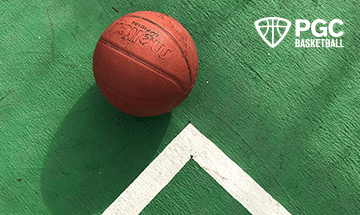Learning How to Lose
No one is quite sure about how a player is supposed to act after a loss. It doesn’t seem necessary to cry for a week, especially since you are likely to have another game within that time. Yet, it doesn’t seem quite right to walk off the court laughing either. Naturally, some losses will be more bothersome than others, and, just as naturally, every player will lose sometimes. Therefore, it seems intelligent to prepare a response in advance for those unhappy times when the inevitable happens, you lose.
First, after you lose, you should think. Thinking should keep you from laughing and probably from crying as well. Neither laughing nor crying is likely to help you much for next time, but thinking is always valuable. Did you give your best physical effort? Were you fully tuned into the game mentally? What things could you have done better? How could you have prevented the loss? What would you do differently if you had it to do over? What did the other team do to confuse you or to make it difficult? Can you use that on someone else in the next game?
There are a lot of questions to ask yourself, and those should come in place of the more common comments like “The referees were terrible,” “The coach was stupid,” or “If only Jones hadn’t tried that stupid shot.”
No one loses a game single-handedly. There are unfortunate circumstances when a player misses a shot at the end with his team a point behind, or he travels with the ball or kicks it out of bounds. People may say he lost it. But he didn’t. you lost it with that one turnover at the beginning, that bad pass, or that failure to talk on defense in the first half that gave the other team an easy basket.
Second, get out of the habit of blaming referees and coaches and others, and think. Don’t decide until the next day what your verdict is. A lot of times, with emotions high after a big game, things get said that aren’t meant and aren’t true. But, mixed in with disappointment, anger and fatigue, it is easy to say things that won’t seem so intelligent the next morning.
Third, get in the habit of saying you aren’t sure what happened or why you lost. Say you need time to think about the game. And then do that. Think about it. Go back over every play, everything you can remember—not forever, not even for a week, but certainly on your way off the court, in the locker room, on the bus home, and that night in bed. That ought to be enough.
Then, there should be some jokes in the morning that will be funny again, and it will be time to be getting ready to win the next one, to encourage others and to go on living. It’s only after the game you should think about it. Think so much that there isn’t time to laugh or cry.
If you don’t think about it when it is fresh in your mind, it is difficult to believe that you really want to be a good player.
Good players think. Especially after a loss. That’s how they learn not to lose very often.
—Excerpted from the book, “Stuff! Good Players Should Know.”
Related Articles
The Beauty of the Game | The Leadership Podcast
Mano joins Jan Rutherford & Jim Vaselopulos, on The Leadership Podcast to talk about his sports and business experiences with stories and advice on thinking like a coach, communicating, and making a difference in people’s lives.
The Way I End Each Year
For the past few years, I have taken time over the holidays to do the same two exercises: On New Year’s Eve I take time to reflect back on the year; then on New Year’s Day I take time to create my plan for the coming year. These few hours have become really special to me. In fact, I look forward to them with great anticipation. Looking back on the year gives me the chance to pause to celebrate and appreciate all that transpired. My reflection process is the same each year.
A Leadership Lesson Most Never Get
If there is one crucial concept that is important to living well, it’s learning to live between your own ears.
About PGC
PGC Basketball provides intense, no-nonsense basketball training for players and coaches. Our basketball camps are designed to teach players of all positions to play smart basketball, be coaches on the court, and be leaders in practices, games and in everyday life.
We combine our unique PGC culture with a variety of teaching methods and learning environments to maximize the learning potential of those that attend our sessions. In addition to spending 6-7 hours on the court each day, lessons will be reinforced through classroom sessions and video analysis.
Our goal at PGC is to empower you with the tools to fulfill your basketball dreams, while also assisting you in experiencing the joy of the journey.
To learn more about PGC Basketball, including additional basketball training tips and videos, visit our YouTube Channel or find us on Facebook, Instagram, and Twitter.













Share This Post